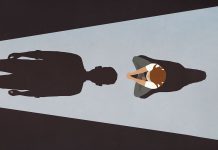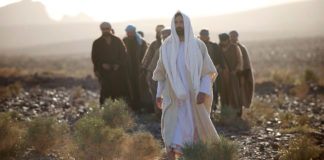Marathon ended
I doubt there’s a person who hasn’t heard of the Boston Marathon bombing, which took the lives of three people. As runners entered the home straight, with the finish line in sight, first one then another explosion ripped through the happy, watching throng.
Christ has ascended!
On the evening of His passion, Jesus promised His disciples, ""Do not let your hearts be troubled. You believe in God; believe also in me. My Father’s house has many rooms; if that were not so, would I have told you that I am going there to prepare a place for you? And if I go and prepare a place for you, I...
Faith that survives unanswered prayers
The greatest tragedy of life is not unanswered prayer, but unoffered prayer. – F. B. Meyer
Knowledge sharing in Christian communities
Whether we are cooking, repairing things, or solving life's problems, we are always learning from each other. However, when it comes to certain areas, including church life, the interchange of experiences is lacking. Communities often keep their ideas, and especially their mistakes, to themselves. Can we rediscover the deeply biblical nature of knowledge sharing?
The Protestant Reformation: The river that runs through the whole earth
The Protestant Reformation was a tumultuous river, the flow of which began to become visible in 1517. A significant contribution to this eruption was made by its tributaries, the (pre-) Reformation movements: the Waldenses, Albigensians, Lollards, Hussites, etc.—true springs of the main Protestant current, which took over their force in its flow through history.
Christianity, between constraint and libertinism
To be a good Christian, they say, you must not swear, steal, lie, cheat or speak ill of anyone.
Would Jesus be disappointed in the Church?
The dissonance between what church representatives say and what they do, the crises caused by sexual scandals, tolerating sin, not taking responsibility for mistakes and hiding them, and selling spiritual gifts for money, are just a few of the reasons why people say they’re disappointed in the Church.
“The Harrowing of Hell” asks: Who was Jesus?
There is perhaps no historical figure who is more frequently the topic of debates than the figure of Jesus Christ. Prophet or Conman? Divine or Human? Martyr or Madman?
Mary Dyer
That fateful day of June 1st, 1660, was not the first time Mary Dyer wound up at the gallows. The previous time, with her hands tied and her face covered by the handkerchief of her former pastor, Reverend John Wilson, she had escaped death by the skin of her teeth, after a death sentence that had already killed two of her dear friends...
Trust in God and the great small step
Trust in God gives clarity to our thinking, so God asks us not to be obsessed with justice, but to be concerned with and delighted by grace.
Celebrating transformative faith
I don’t remember ever doubting that, beyond the limits of the ensnaring, visible world, there is another reality that can only be accessed by those who speak the language of faith.
Jesus: The Word and His words
Jesus' principles can still shape a sincere discourse even though many centuries have passed since the moment they were displayed in His life.
Did the Church halt the progress of surgery?
An urban legend claims that the Church vehemently opposed the dissection of corpses through medieval decrees of prohibition or limitation of this practice.
The lamb that was slain for me
"The fire and wood are here, but where is the lamb for the burnt offering?" (Genesis 22:7).
The God of love, the God of justice
Centuries ago, the German theologian and philosopher Gottfried Wilhelm Leibniz used the term “theodicy”1 for the first time—“God’s justification”. By theodicy, Leibniz meant the ultimate reality of justification, once and for all, of God and all of His ways before the whole universe.


























